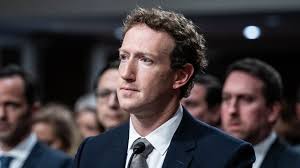Mark Zuckerberg, CEO of Meta, recently expressed deep regret over what he described as “censorship” enforced on Meta’s platforms during the COVID-19 pandemic. In a letter to the U.S. House Judiciary Committee, Zuckerberg revealed that high-ranking officials in the Biden administration pressured Meta to limit the visibility of certain content related to the pandemic, including posts classified as humor or satire. He admitted that Meta’s compliance was a mistake and emphasized that the company would resist such government pressures in the future.
Zuckerberg’s letter, which was intended to address content moderation practices on Facebook and Instagram, took a different tone, focusing on the challenges Meta faced from government authorities during the pandemic. According to Zuckerberg, the pressure from government officials was inappropriate, and Meta should have been more outspoken against it. He pledged that Meta would uphold its content standards without yielding to governmental influence.
This admission has been celebrated by Republicans, particularly by Jim Jordan, the leader of the Republican faction in the U.S. House of Representatives, who described it as a “major victory for free speech.” The letter also revived debates surrounding Meta’s decision to suppress a story from the New York Post about Hunter Biden before the 2020 election, which was done after the FBI warned of potential Russian disinformation. Zuckerberg acknowledged that the decision to downplay the story was wrong, as it turned out not to be a product of Russian disinformation.
The White House, in response, defended its approach to managing COVID-19 information, stating that during a deadly pandemic, it was crucial to take responsible actions to protect public health. They argued that technology companies, along with other actors, must consider the broader impacts of their actions on society.
This incident is part of a larger, ongoing conflict in Washington over the role of social media companies in moderating content. Conservative groups have long accused platforms like Facebook and Instagram of suppressing their viewpoints, often invoking the concept of a “woke agenda” when discussing content moderation practices. The issue has become increasingly prominent, especially with the rise of platforms like Telegram and changes in leadership at companies like Twitter (now X) under Elon Musk, who has also been a vocal advocate for less content moderation.
Zuckerberg’s recent statements mark a significant moment in the ongoing discourse about the responsibilities and limits of social media platforms in content moderation, especially when faced with governmental pressure. The situation continues to evolve as Meta, lawmakers, and the public grapple with these complex issues.





